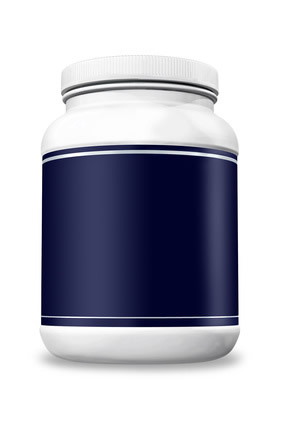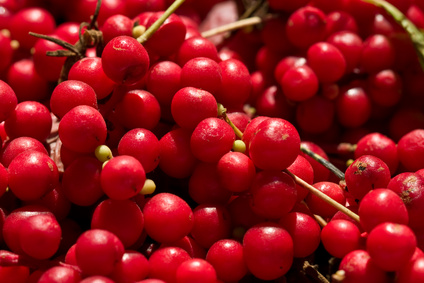Damiana (Turnera diffusa) is a relatively small shrub that produces small, aromatic flowers. The aromatic leaves of this small shrub have amazing medicinal properties and have been used with a long history. The leaves of the damiana plant are used for medicinal purposes.
Damiana Benefits
Damiana has as strong reputation for improving sexual function for men and women. Animal studies have indicated antihyperglycemic, anti-inflammatory, and indomethacin-inhibiting properties. According to The British Herbal Pharmacopoeia, damiana is used for anxiety neurosis with a predominant sexual factor, depression and coital inadequacy.
Libido
Damiana has long been claimed to have a stimulating effect on libido, and its use as an aphrodisiac has continued into modern times. The active alkaloids in damiana may have a testosterone-like effect in your body, and this may be responsible for damiana’s ability to raise libido in both men and women. It was included in the National Formulary in the United States from 1888 to 1947, of its effect on sexuality and sexual dysfunction. Damiana leaf has been shown to increase circulation and sensitivity in the penis and clitoris, as well as stimulate sexual desire. In animal studies, extracts of damiana speeded up the mating behavior of sexually sluggish or impotent male rats.
Depression
 Damiana has been shown to help boost energy and reduce the effects of exhaustion. Has also been proven that damiana contains properties that can help ease anxiety and depression for it has anti-depressant properties that can greatly help individuals that are depressed and anxious. In Germany damiana is a popular herbal remedy for stress or nervous disorders. Because of this quality, it has been prescribed as a herbal remedy for those suffering from mild to moderate depression. Poor blood flow can increase lethargy and chronic exhaustion so taking a stimulant such as damiana may help to restore energy and vitality.
Damiana has been shown to help boost energy and reduce the effects of exhaustion. Has also been proven that damiana contains properties that can help ease anxiety and depression for it has anti-depressant properties that can greatly help individuals that are depressed and anxious. In Germany damiana is a popular herbal remedy for stress or nervous disorders. Because of this quality, it has been prescribed as a herbal remedy for those suffering from mild to moderate depression. Poor blood flow can increase lethargy and chronic exhaustion so taking a stimulant such as damiana may help to restore energy and vitality.
Testosterone
An alkaloid in damiana acts like the male hormone testosterone. A study conducted by the U.S. Department of Agricultural Research showed that damiana leaves have the potential to raise testosterone levels. In-vitro tests also indicate that damiana extracts inhibit the aromatase enzyme responsible for testosterone conversion to estrogen and induce smooth muscle relaxation.
Menstruation
Damiana leaf has been used to relieve painful menstruation and other sorts of hormonal difficulties. By regulating hormonal levels, damiana helps to alleviate symptoms such as hot flashes and night sweats. Damiana has a balancing and normalizing effect on the hormones and thus is a very useful herb to bring natural relief from many of the discomforts of menopause. It controls hot flashes, and helps to balance hormones in women. Damiana is believed to possess phytohormonal compounds that may be able to balance hormones and strengthen the reproductive organs in women. One study suggests that damiana may have plant compounds with effects similar to those of progesterone.
Blood Sugar & Antiinflammatory
Damiana’s traditional use for diabetes has been studied by scientists as well. The herb’s hypoglycemic properties were documented by Mexican scientists in 1984. A 1984 study published in the December edition of the Journal of Ethnopharmacology found that a damiana leaf may help lower blood sugar levels in patients with diabetes. Damiana’s antiulcerogenic effect may be due to both its antiinflammatory action as well as its ability in increase gastric mucus secretion. Within the genitourinary system, damiana acts as an astringent and detoxifier, tackling preexisting urinary tract diseases.
Damiana Dosage
Pour one cup of boiling water over one teaspoonful of dried leaves and let infuse for 10 to 15 minutes. Daminia leaf tea is bitter, and is often blended with sweeter herbs. As a capsule, take 400 to 800 mg capsules up to three times daily.
Damiana Leaf Side Effects
Damiana side effects although rare, allergic reactions to damiana may occur. Higher doses may cause mild diarrhea. Damiana use reduces absorption of iron in some instances. Damiana can affect glucose levels and should be used with caution. Diabetics who take hypoglycemic medications should monitor blood glucose levels closely while using Damiana. Damiana may interact with herbs and supplements that alter progestin. If you are on any medications, check with your doctor first before using this product.
 Red clover contains genistein, a compound that prohibits the growth of blood vessels into tumors, preventing the growth of the tumor as well. Red clover contains a form of vitamin E known as tocopherol, which is a powerful anticarcinogenic compound. Tocopherol helps to prevent the growth of cancerous tumors and lowers the risk of developing, particularly breast cancer. Some doctors believe that isoflavones increase the risk for a return of estrogen-dependent cancers, while others site evidence that suggests the isoflavones bind to the receptors that cancer cells require to divide and actually prevent or delay the return of cancer.
Red clover contains genistein, a compound that prohibits the growth of blood vessels into tumors, preventing the growth of the tumor as well. Red clover contains a form of vitamin E known as tocopherol, which is a powerful anticarcinogenic compound. Tocopherol helps to prevent the growth of cancerous tumors and lowers the risk of developing, particularly breast cancer. Some doctors believe that isoflavones increase the risk for a return of estrogen-dependent cancers, while others site evidence that suggests the isoflavones bind to the receptors that cancer cells require to divide and actually prevent or delay the return of cancer. Boswellia serrata appears to reduce the inflammation associated with Crohn’s disease and ulcerative colitis, painful intestinal disorders. Randomized, placebo controlled, double-blind experiment, patients with Crohn’s disease were treated with 2 oral capsules of 400 mg Boswellia serrata or placebo three times daily for 12 months. At the end of the study, found that 59% of the Boswellia-treated and 55% of the placebo-treated patients maintained remission from Crohn’s disease, indicating no statistically significant difference in efficacy between the active and control groups.
Boswellia serrata appears to reduce the inflammation associated with Crohn’s disease and ulcerative colitis, painful intestinal disorders. Randomized, placebo controlled, double-blind experiment, patients with Crohn’s disease were treated with 2 oral capsules of 400 mg Boswellia serrata or placebo three times daily for 12 months. At the end of the study, found that 59% of the Boswellia-treated and 55% of the placebo-treated patients maintained remission from Crohn’s disease, indicating no statistically significant difference in efficacy between the active and control groups. Schizandra has been shown to strengthen and protect the liver. Laboratory studies have demonstrated its ability to make the enzyme,
Schizandra has been shown to strengthen and protect the liver. Laboratory studies have demonstrated its ability to make the enzyme,  Ashwagandha increases the count of white blood cells and prepares the body to produce antigens against various infections and allergies. A number of studies have shown significant increases in white blood cell counts and other measures of strengthened immunity in rodents given ashwagandha or certain chemicals extracted from the herb. Animal studies published in 1994 confirmed that ashwagandha’s withanolides stimulate
Ashwagandha increases the count of white blood cells and prepares the body to produce antigens against various infections and allergies. A number of studies have shown significant increases in white blood cell counts and other measures of strengthened immunity in rodents given ashwagandha or certain chemicals extracted from the herb. Animal studies published in 1994 confirmed that ashwagandha’s withanolides stimulate